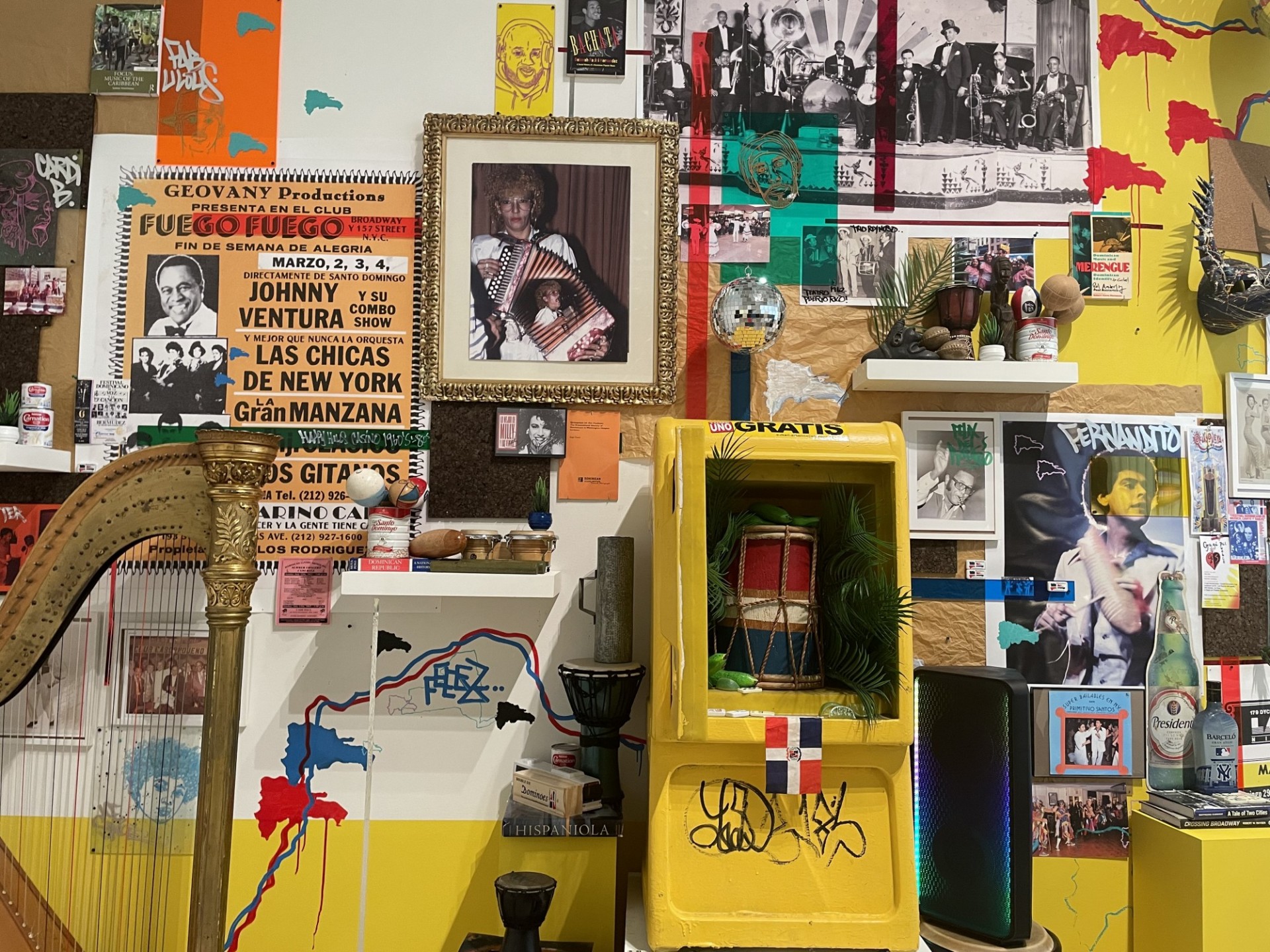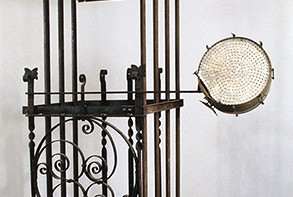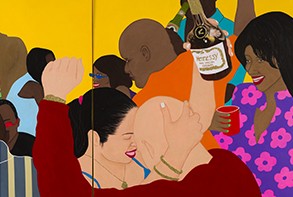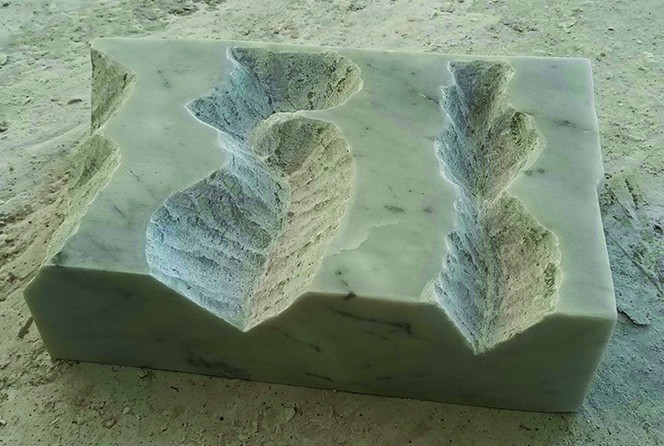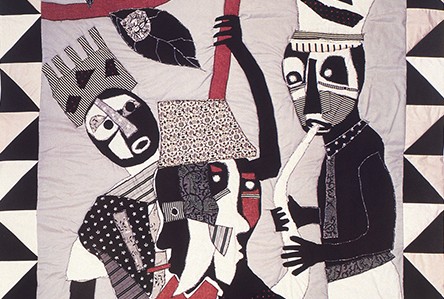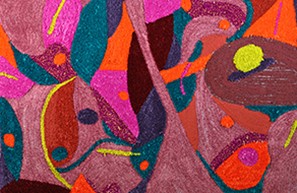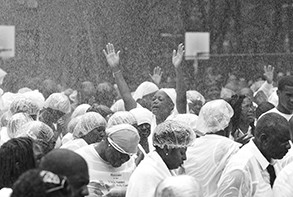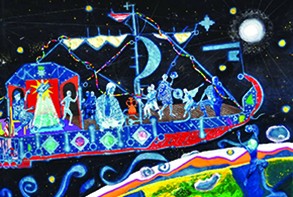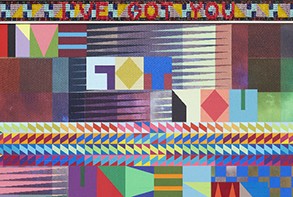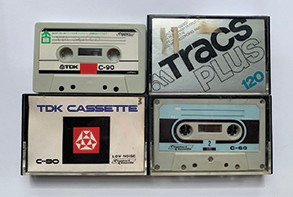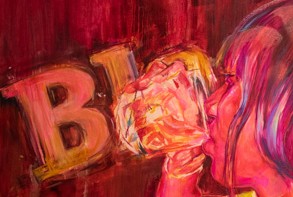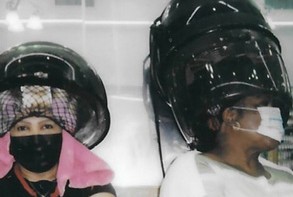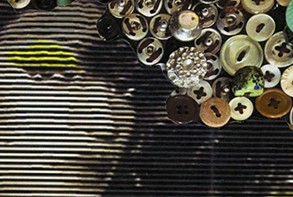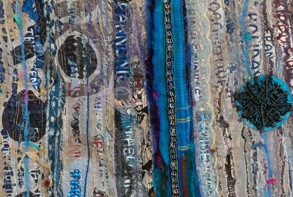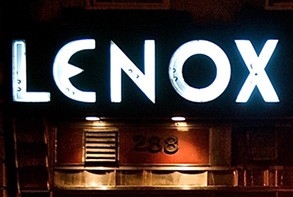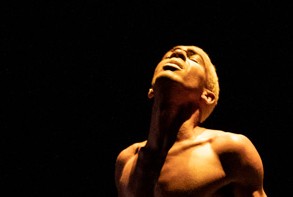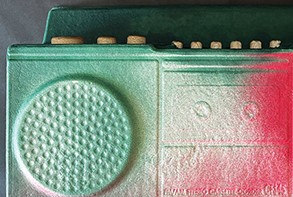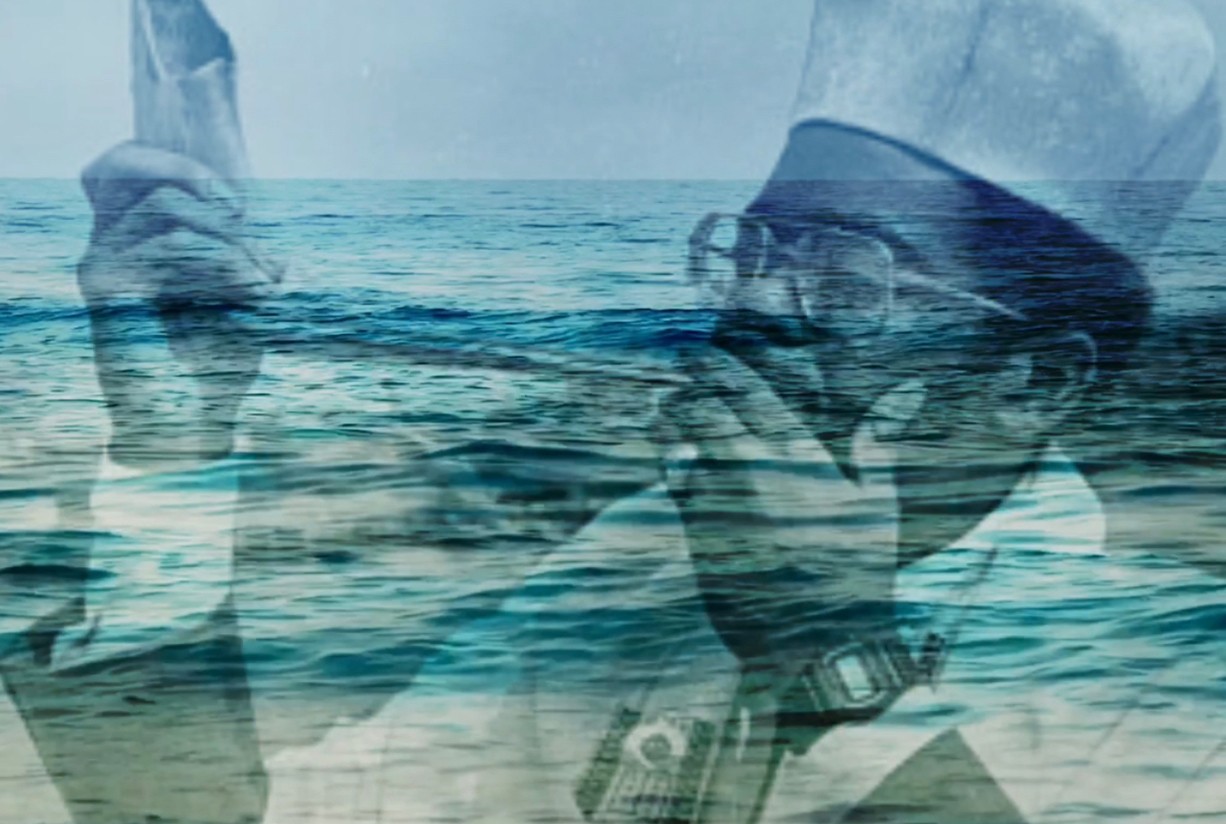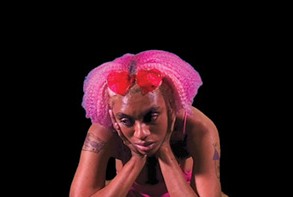CARLOS JESUS MARTINEZ-DOMINGUEZ/FEEGZ
(b. 1976, Jacksonville, NC; living and working between Washington Heights and Austin)
Puerto Rican-Dominican street artist, printmaker, and educator Carlos Jesus Martinez-Dominguez, also known as “FEEGZ,” “Figaro,” or “Firo,” uses collaborative, public art to react to world events and to incite or participate in inter-community debate. Through his tags and designs, he celebrates the unique diversity of identities throughout the Americas, while dissecting the flaws in non-inclusive cultural canons. Martinez-Dominguez has participated in residencies at El Museo del Barrio (2017) and the Loisaida Center (2019–20). His work is held in the permanent collections of El Museo del Barrio and the Blanton Museum. Recent exhibitions of Martinez-Dominguez’s work include NY Latin American Art Triennial Graffiti SALON (Boricua College Art Gallery, New York, 2022), A botella exhibit: cause no one else is asking (Comisionado Dominicano de Cultura en Estados Unidos, New York, 2022), and The Latinx Diaspora (The Hispanic Society of America Museum and Library, New York; National Puerto Rican Museum of Art and Culture, Chicago, IL; 2021). Martinez-Dominguez serves as the senior educator at El Museo del Barrio, and has worked as an artist advisory board member and educator with Arts Connection, a project coordinator and educator with the Loisaida Center, and an educator and guide at the Caribbean Cultural Center African Diaspora Institute.
WORK IN THE EXHIBITION
Through his work as a street artist, printmaker, and educator, Carlos Jesus Martinez-Dominguez/FEEGZ participates in “adding to the archive” of cultural history, advocating for inclusivity in institutional collections and challenging his viewers to contribute to debates around cultural definitions. In Musica Dominicana in NYC: An Archival Revision Board he seeks to commemorate Dominican musical traditions, both working with and expanding the archive dedicated to Dominican music produced in New York City at the CUNY Dominican Studies Institute. Replete with physical objects and reproductions from the archive, from records to paraphernalia, Martinez-Dominguez installation frames the works that have been selected as representational. At the same time, cognizant that archives often exclude vital genres within Dominican Music, from hip-hop to dembow to reggaeton, Martinez-Dominguez makes an intentional effort to highlight these forms and envisions his work as a catalyst for conversation and collaboration.
This collaborative installation highlights the rich and varied originals and reproductions of album covers, photographs, and ephemera from the CUNY Dominican Studies Institute (CUNY DSI) Archives and Library, offering visitors a glimpse into the hidden treasures within the collections. The CUNY DSI is an interdisciplinary research unit established in 1992 at The City College of New York within the City University of New York (CUNY) system. Dr. Ramona Hernández directs the institute, and it is dedicated to studying, preserving, and disseminating knowledge about the Dominican experience in the United States and the Dominican Republic.
The establishment of the CUNY DSI Library in 1994 under the guidance of Chief Librarian Prof. Sarah Aponte, and the subsequent inception of the Dominican Archives in 2002 by Don Idilio Gracia Peña, has provided a valuable repository for primary and secondary sources on Dominican music. Within the Library, several notable collections contribute to the essence of the installation. First is the Paul Austerlitz Collection, an extensive archive graciously donated by ethnomusicologist and jazz musician Dr. Paul Austerlitz, which meticulously documents the evolution of Dominican Merengue and showcases influential artists through vintage photographs, including works captured by the esteemed Dominican photographer Víctor Camilo Bencosme. The library’s vinyl collection also captures historical sound recordings that vividly portray Dominican music and culture from the 1950s to the 1990s. Following the record collection are unique collections of rare photographs depicting musicians across various eras and ephemera, such as posters, flyers, and handbills that shed light on the vibrant Dominican music scene in New York City.
One of the principal archival collections featured is the renowned collection of Dominican dancer, choreographer, and community activist Normandía Maldonado (1929-2018), who led and founded the dance troupe Centro Cultural Ballet Quisqueya in 1966 and lived for decades in Washington Heights, NY. Other collections included are the Margarita Madera Collection, a former dancer of Ballet Qusiqueya and daughter of Dominican artist Yoyito Cabrera, and the Zunilda Fondeur Collection, a well-respected journalist, producer, and MC in the Dominican community for many years. In addition, the library and archival collections contain amazing photographs from local Dominican and Latino photographers such as Eduardo Naranjo, Sigfrido Sarita, Eduardo Hoepelman, and Angelo Villamil, who recorded how Dominican culture was expressed and celebrated through music and the collective body.
Lastly, the installation draws inspiration from the engaging electronic resource "A History of Dominican Music in the United States," an interactive digital platform that stands as the pioneering NEH-funded open-source initiative delving into the narrative of Dominican music's evolution over the past century in the United States. This online tool provides a wealth of multimedia materials firmly rooted in historical contexts while addressing broader themes of immigration, identity, and diversity. It represents a fresh and innovative avenue for comprehending the rich tapestry of Dominican music.


